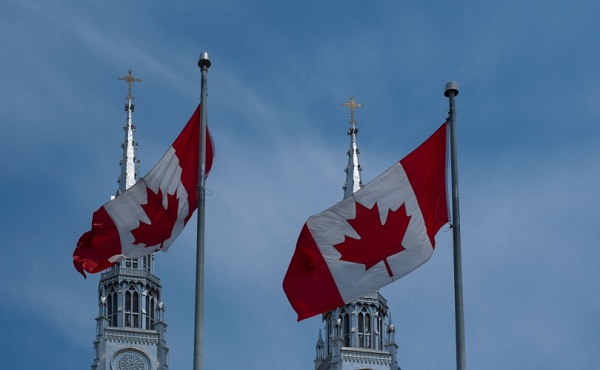National
Canadian gov’t budget report targets charitable status of pro-life groups, churches

From LifeSiteNews
A Pre-Budget Consultations in Advance of the 2025 Budget report recommends no longer providing charitable status to anti-abortion organizations and amending the Income Tax Act to remove the privileged status of ‘advancement of religion’ as a charitable purpose.
In 2022, I wrote an essay titled “What is coming next for Canadian churches?” In that essay, as well as in my recent book How We Got Here, I noted that as Canada shifted from being a post-Christian society to an increasingly anti-Christian one, Christian churches and organizations will inevitably lose tax-exempt or charitable status:
Churches and other religious institutions that refuse to bend the knee will likely lose their tax-exempt status at some point. Canadian LGBT activists have been making this case for years, and it is only a matter of time before the idea catches on or — more likely — a progressive politician decides that the time is right. I suspect that a key reason this has not yet been discussed is the awkward fact that many non-Christian institutions hold similar positions on marriage, sexuality, and abortion. That said, I have no doubt that a way to target churches specifically will be worked out. LGBT activists are already asking why the government is “rewarding bigotry” by awarding tax-exempt status to churches with a traditional view of sexuality, and LGBT activists have publicized sermons they disagree with as evidence of hatred. The churches and the state are on a collision course, and it isn’t hard to guess how this will end.
We may be seeing the first move in that direction. With the Christmas season upon us and Ottawa in chaos, few Canadians noticed the government’s publication of “Pre-Budget Consultations In Advance of the 2025 Budget,” the report of the Standing Committee on Finance. The report of annual pre-budget consultations included 462 recommendations that have been tabled and, according to the Standing Committee, will be taken into account by “the Minister of Finance in the development of the 2025 federal budget” (which, if Trudeau is still in power, will be Dominic LeBlanc).
Two recommendations included in that report are deeply concerning, and the Christian Legal Fellowship has written to both the Minister of Finance and the Finance Committee Chair Peter Fonseca to express that concern:
Recommendation 429: No longer provide charitable status to anti-abortion organizations.
Recommendation 430: Amend the Income Tax Act to provide a definition of a charity which would remove the privileged status of ‘advancement of religion’ as a charitable purpose.
Those two recommendations, of course, were buried at the very end of the report. The first is unsurprising — Trudeau’s government is currently targeting crisis pregnancy centers that assist moms and babies in need, so it was inevitable that the government was eventually going to target local Right to Life organizations and other pro-life groups that still have charitable status. More brazen is the recommendation that the Income Tax Act be amended to eliminate “advancement of religion” as a charitable purpose — this could, according to the Christian Legal Fellowship, “have a devastating impact, not only on the 32,000+ religious charities in this country, but the millions of Canadians they serve.” CLF urged the government “to reject any such approach and clarify exactly what is being contemplated.” As CLF noted in their letter:
Religious charities account for nearly 40% of all charities in Canada, including churches, mosques, temples, synagogues, and other faith communities, operating programs such as soup kitchens, shelters, refugee homes, and food banks. They provide indispensable social, economic, and spiritual support, filling a significant gap in our communities and meeting the needs of millions of Canadians.
Suggesting that such organizations must do something other than “advance religion” to be considered charitable ignores the reality that these services are themselves the very manifestation of religious beliefs, inherent to and inextricable from the charity’s religion itself. It also betrays a long-standing recognition of the intrinsic goods provided by religious communities, who offer people hope, encouragement, and belonging in ways that simply cannot be quantified or replaced. Ultimately, any efforts to substitute their much-needed services would place an extraordinary strain on all levels of government.
I have no doubt that the Trudeau government is willing to purse these recommendations regardless; these plans, however, may be thwarted by the next election. Trudeau no doubt remembers the Canada Summer Jobs Program fight, when his government insisted that recipients sign an attestation of support for abortion and LGBT ideology and suddenly found themselves facing angry imams, rabbis, and other religious leaders instead of just the priests and pastors they’d assumed would be impacted. It seems unlikely that going after religious charities is a fight Trudeau wants now.
Trudeau will, however, be campaigning on abortion — it’s the wedge issue he returns to again and again as the PMO increasingly resembles Custer’s Last Stand. Thus, Recommendation 429 may be taken up sooner rather than later. Either way, these two recommendations are essentially a statement of purpose. The Liberals may not get to them just now, but be assured that this is what progressives intend to do just as soon as they get the chance.
Censorship Industrial Complex
Pro-freedom group warns Liberal bill could secretly cut off Canadians’ internet access

From LifeSiteNews
“The minister could order this dissident’s internet and phone services be cut off and require that decision remain secret”
Free speech advocates have warned that the Liberals’ cybersecurity bill would allow them to block any individual’s internet access by secret order.
During an October 30 Public Safety committee meeting in the House of Commons, Canadian Constitution Foundation (CCF) counsel Josh Dehaas called for Liberals to rewrite Bill C-8, which would allow the government to secretly cut off Canadians access to the internet to mediate “any threat” to the telecommunications system.
“It is dangerous to civil liberties to allow the minister the power to cut off individual Canadians without proper due process and keep that secret,” Dehaas testified.
“Consider for example a protestor who the minister believes ‘may’ engage in a distributed denial of service attack, which is a common form of civil disobedience employed by political activists,” he warned.
“The minister could order this dissident’s internet and phone services be cut off and require that decision remain secret,” Dehaas continued, adding that the legislation does not require the government to obtain a warrant.
In response, Liberal MP Marianne Dandurand claimed that the legislation is aimed to protect the government form cyberattacks, not to limit freedom of speech. However, Dehaas pointed out that the vague phrasing of the legislation allows Liberals to censor Canadians to counter “any threat” to the telecommunications system.
Bill C-8, which is now in its second reading in the House of Commons, was introduced in June by Minister of Public Safety Gary Anandasangaree and contains a provision in which the federal government could stop “any specified person” from accessing the internet.
The federal government under Prime Minister Mark Carney claims that the bill is a way to stop “unprecedented cyber-threats.”
The bill, as written, claims that the government would need the power to cut someone off from the internet, as it could be “necessary to do so to secure the Canadian telecommunications system against any threat, including that of interference, manipulation, disruption, or degradation.”
Many Canadians, including Conservative MPs and freedom groups, have condemned the legislation, along with several other new Liberal bills which aim to censor internet content as well as go after people’s ability to speak their minds.
“Experts and civil society have warned that the legislation would confer ministerial powers that could be used to deliberately or inadvertently compromise the security of encryption standards within telecommunications networks that people, governments, and businesses across Canada rely upon, every day,” the Canadian Civil Liberties Association wrote in a recent press release.
Similarly, Canada’s own intelligence commissioner has warned that the bill, if passed as is, could potentially be unconstitutional, as it would allow for warrantless seizure of a person’s sensitive information.
Automotive
Canada’s EV experiment has FAILED

By Dan McTeague
The government’s attempt to force Canadians to buy EVs by gambling away billions of tax dollars and imposing an EV mandate has been an abject failure.
GM and Stellantis are the latest companies to back track on their EV plans in Canada despite receiving billions in handouts from Canadian taxpayers.
Dan McTeague explains in his latest video.
-

 Business1 day ago
Business1 day agoTrans Mountain executive says it’s time to fix the system, expand access, and think like a nation builder
-

 International1 day ago
International1 day agoBiden’s Autopen Orders declared “null and void”
-

 MAiD1 day ago
MAiD1 day agoStudy promotes liver transplants from Canadian euthanasia victims
-

 Business1 day ago
Business1 day agoCanada has given $109 million to Communist China for ‘sustainable development’ since 2015
-

 Internet1 day ago
Internet1 day agoMusk launches Grokipedia to break Wikipedia’s information monopoly
-

 Business1 day ago
Business1 day agoCanada’s combative trade tactics are backfiring
-

 Automotive1 day ago
Automotive1 day agoCarney’s Budget Risks Another Costly EV Bet
-

 Business1 day ago
Business1 day agoYou Won’t Believe What Canada’s Embassy in Brazil Has Been Up To








